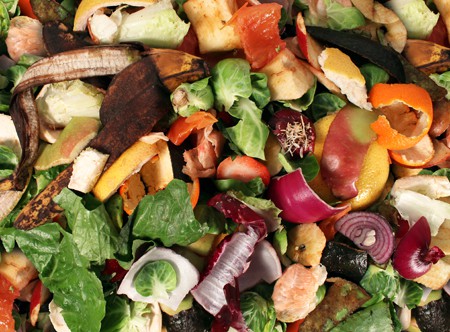And, the Authority has questioned the effectiveness of voluntary schemes such as the Courtauld Commitment – calling for a ‘thorough assessment’ to investigate where mandatory measures should be introduced.

NLWA was responding to the Environment, Food and Rural Affairs (EFRA) committee’s call for evidence on its latest inquiry, which is assessing the economic, social and environmental impact of food waste in England.
In the UK, an estimated 8 million tonnes of food is wasted post-manufacture – including from households, retail and wholesale and the hospitality sector. This has an annual value of approximately £16 billion a year, the EFRA committee suggests.
Asked what proposals are necessary to reduce food waste, NLWA – the second largest disposal authority in the UK covering seven London boroughs – has called for the consideration of landfill restrictions.
‘Difficult’
But, the Authority notes that it would be ‘relatively difficult’ to introduce producer responsibility legislation throughout the whole food production and distribution stream – including to householders.
And, it argues the commercial and industrial food waste stream could be more easily targeted, and would also tackle waste at the manufacturing stage.
The NLWA response notes: “A ban on commercial and industrial food waste to landfill would have the benefit of diverting industrial food wastes from disposal, including the quantity of food waste from small restaurants and shops, thus making food waste collections potentially more viable for these premises and potentially further stimulating the market for anaerobic digestion.
“However, it may have the unintended consequence of encouraging retailers to sell more short-life food to householders to avoid sending the food to relatively expensive AD and composting outlets; which would have to be guarded against.”
NLWA explains that in order to make the ban viable, a planning framework would be required with an aim of rolling out the legislation in seven to 10 years. In Scotland, businesses producing over 5kg of food waste per week are already expected to provide it for separate collection.
Voluntary
The Authority was also asked about the impact of voluntary initiatives on driving down food waste – and responded that they work better as a ‘precursor’ to legislative backing.
Citing a number of schemes, including Fareshare and the Pig Idea, NLWA reflected that without any requirements, standardised methodology for measurement or collaborative reporting, it was impossible to draw meaningful conclusions on how effective they were.
The Courtauld Commitment meanwhile had shown ‘successful examples’ of food waste reduction, according to NLWA, but only concentrated on larger retailers. “Therefore an important part of the retail sector which has a significant presence in north London is not directly influenced by the Commitment”, it adds.
All evidence to the EFRA committee’s inquiry has now been submitted.








Subscribe for free